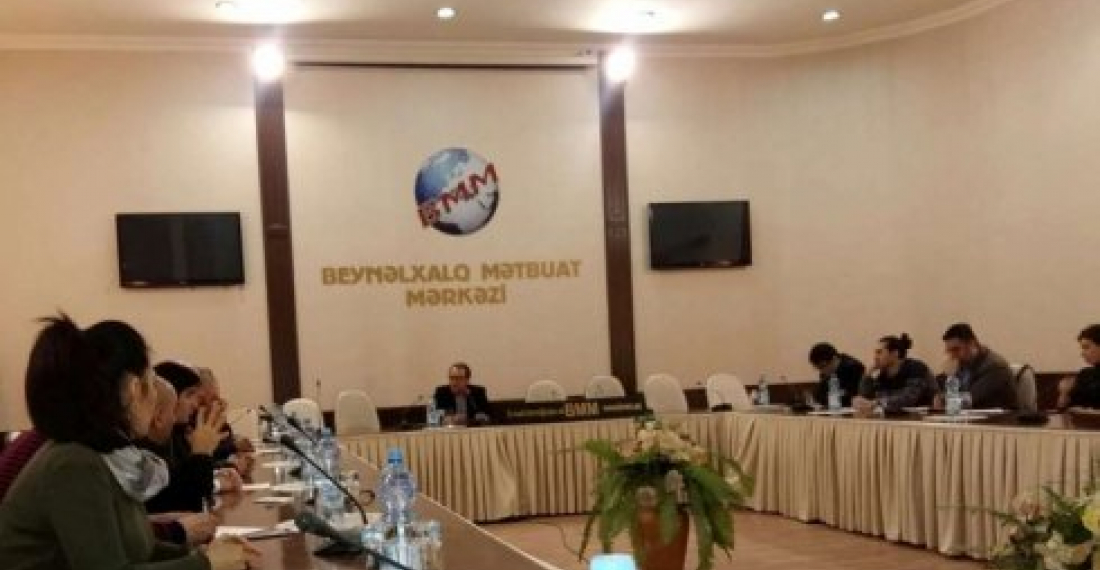Representatives of Azerbaijani civil society, on Monday (4 February) discussed the next steps on the way to peace at a round table organised at the premises of the International Press Club in Baku. The event, with the theme: "Preparing the nations for peace: problems of the past and present", was organized by the Humanitarian Research Public Union.
Avaz Hasanov, the head of the organisation, noted that on January 16, after the meeting of the Foreign Ministers of Azerbaijan and Armenia in Paris, a statement was distributed about the need to prepare the people of the two countries for peace. This step can give a serious impetus to the conflict settlement process, the development of regional security and sustainable regional development, he said.
The Chairperson of the Dilara Aliyeva Women's Rights Protection Society, Novella Jafaroglu also reiterated the importance of conducting a dialogue on the road to peace for the peoples. She stressed the need for civil society representatives to coordinate their activities in the process of building peace. She suggested that a meeting be organised in the near future between representatives of civil society and the Minister of Foreign Affairs of Azerbaijan to discuss the Nagorno-Karabakh conflict.
During the event, representatives of civil society shared the experience previously acquired by representatives of civil society from Azerbaijan and Armenia. Independent journalist Asaf Guliyev said that representatives of civil society have rich experience in this area and can be involved in the peace-building process
A member of the Press Council, Azer Hasret, said that after the meeting of foreign ministers, the importance of preparing societies for peace increases. "Peace must be explained to both societies. It is necessary to take steps to eliminate aggressive relations in both societies,"said Hasrat.
Rauf Zeyni, president of the National Forum of Non-Governmental Organizations, said that in the conditions when Azerbaijan suffered more losses, and one million citizens are refugees and internally displaced persons, it will not be easy to explain the need for peace to the country's population."The continuation of the occupation reduces the confidence of our citizens in the world," he said.
Coordinator of the Azerbaijan-Armenia Civil Platform, Dilara Efendiyeva, spoke about the contribution of the peace platform to the normalisation of relations between the two peoples. She noted that the peace platform has the potential to accelerate the "melting of ice" between the two countries through steps aimed at reducing tensions between nations.
Human rights activist Saadat Bananyarly said that "achieving peace should be a condition for the restoration of justice." The chairman of the Human Rights Bureau, Saida Gojamanly, said she expects people to be more careful in the negotiation process. "People who have been expelled from their homeland are hoping to return to their homes as a final result," she said.
ZaurShiriyev, an analyst at the International Crisis Group and a representative of the EU Special Representative for the South Caucasus, Johanna Ketola, stressed the importance of properly assessing the role of civil society in the peace process and using their capabilities.
source: commonspace.eu with Turan news agency, Baku.
photo: The meeting of Azerbaijani civil society to discuss the karabakh conflict resolution process held on 4 February 2019 (picture courtesy of contact.az)







